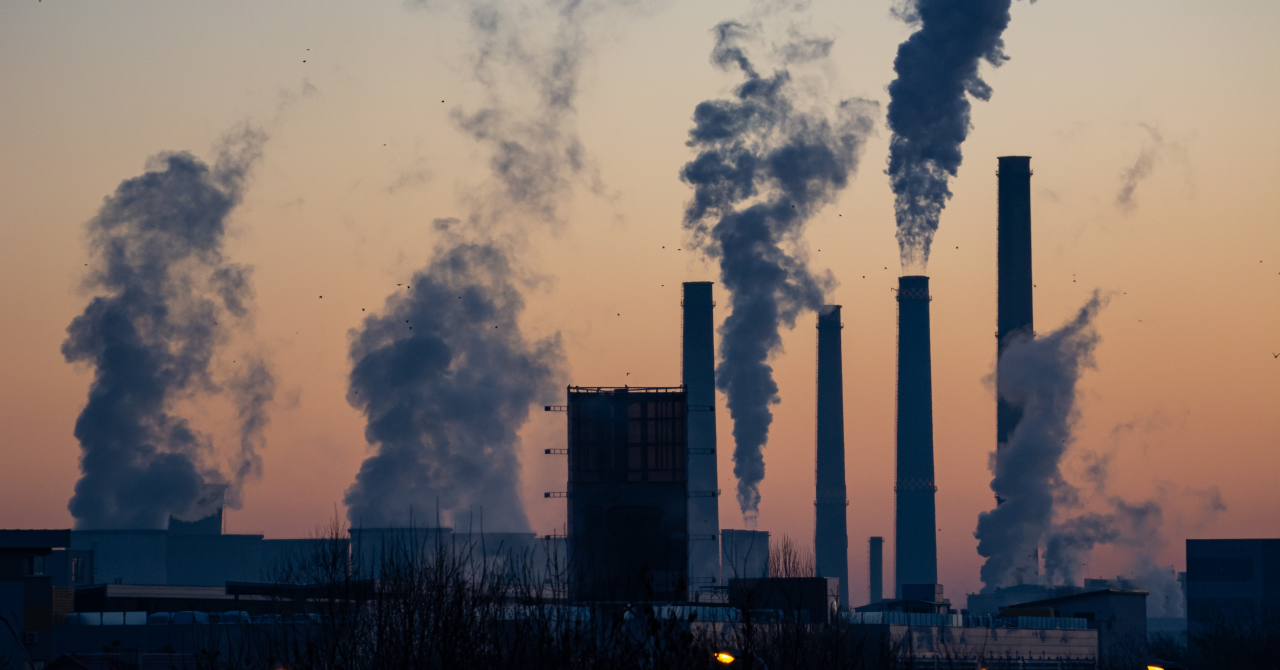What is pollution
Pollution isn't necessarily only a result of human activity, as volcanic ash is also considered to be a form of pollution.
Pollutants resulting from human activity are, among others, municipal waste and toxic materials resulted from industrial processes.
Polluting materials have negative effects on the environment, whether we're talking about air, water or land.
Cars that we use pretty much on a daily basis, for commuting or leisure activities also release emissions in the atmosphere, which contribute to global warming, with the exception of EVs.

EVs are a class of vehicles that don't directly emit greenhouse gas emissions and they are one of the ways we can reduce our environmental footprint.
Burning gas or coal for electricity or heat generation also releases emissions, even pesticides can have devastating effects on the environment if they find their way into waterways.
Types of pollution
There are multiple kinds of pollution and among those are air, water, land, radioactive and sound pollution.
Air pollution is one of the more widespread forms of pollution, especially in the city, where levels of air contamination are higher than in any other places on the planet.
But it's not just cities, as data shows that some 99% of the world's population breathes air that exceeds the WHO limits of pollution.
Outdoor air contamination with greenhouse gases is linked to some 4.2 million deaths per year.
Water pollution is another type of infestation that can affect our health in a negative way.
Water can get contaminated from various things, such as plastic waste, pesticides or even radioactive waste. Water can also be infested by natural causes, such as parasites, which makes it virtually unusable without proper filtering.

Radioactive pollution can also be extremely dangerous and while it might not kill you necessarily in small quantities, it can result in severe mutations or health complications.
Disasters, like the ones that took place in Chernobyl or Fukushima, can leave dangerous traces of radioactive materials for tens of years, maybe even more.
Still, nuclear power plants that are operating normally release some radioactive waste from their activity, which needs to be disposed of in safe locations.
Noise pollution, a prevalent issue in the big cities
Noise pollution is another type of contamination that people might not be too worried about, as they got used to things like traffic noise, but it can still have dangerous effects on our health.
Some 60 million Europeans have issues regarding long-term exposure to high noise levels.
Experts suggest that noise that is under 70 decibels doesn't affect our health negatively, but long-term exposure to over 85 dB can be dangerous for our well-being.
People living in big cities are the most exposed to elevated noise levels, which may cause stress, sleep deprivation, hearing issues and even heart problems.

Noise pollution in the world's seas and oceans, generated by shipping and other activities can also affect the behavior of animals that use sounds to communicate with one another and even with larger groups.
The plastic waste problem
Plastic waste is one of the most serious ways of contaminating the environment, and it is found on the land, but even in waters around the world.
Companies have tried for a while to reduce plastic usage in their packaging and even products, either by cutting the use of the material or finding alternatives to replace it.
Recently, countries and local administrations came up with regulations to fight plastic waste pollution, by forcing companies to develop sustainable alternatives or, more drastically, by forbidding the use of plastic in the future.
Some researchers found out that we can ask mother nature to help with the problem by using plastic-eating worms, but this is not a solution we can count on to keep rolling plastic materials off the production line.

To successfully fight plastic waste and reduce its footprint on the environment, we must combine all the methods mentioned above and, in the future, we have to come up with long term, non-dangerous alternatives.
How pollution affects our health
All forms of pollution are detrimental to our health and the integrity of our ecosystems, but one the most dangerous is air pollution, since we can't change the air we breathe.
Sure, some people can change water sources for better quality and can even move to less populated cities or the countryside for less noise levels, but the truth is that we can't run from poor air quality.
Of course, there are areas on Earth where air quality isn't as bad as in the more population-dense zones, but the overall air quality on our planet took a turn for the worst, due to heavy industrialization and the number of vehicles that roam the planet.
Factories, ICE cars, shipping and planes are just some of the main contributors to the infestation of air with greenhouse gas emissions.
Particulate matter less than 10 micrometers in diameter can get into our respiratory system, experts say, but the most dangerous types of particles are PM 2.5, also known as fine particles, which are 2.5 micrometers in diameter and pose the biggest health risks.
This is due to the fact that their small size allows them to get deeper into the lungs, causing more damage over time.
By using carbon capture technologies and letting nature do its job when it comes to purifying the air, we can slowly reduce air pollution. Still, this is going to take quite a bit of time and we must make sure that we won't be releasing more emissions into the atmosphere to offset our progress.
Water pollution claims hundreds of thousands of lives each year
Water pollution is another phenomenon that affects a large number of the Earth's population.
In fact, more than two billion people live in water-stressed areas, and more places on our planet start to suffer from lack of water due to climate change.

Water pollution plays a major role in this issue, as contaminated drinking water can lead to diseases, such as cholera and typhoid, which kills some 485.000 people every year.
In 2020, only 74% of the world population used a safely managed water service, which ensured clean, contamination-free water.
This means that some 26% people on Earth get water from sources that aren't technically safe to use around the household.
Plastic waste that ends up in our waters, chemical leakage and other environmental issues cause water infestation in more areas than ever, and is part of the reason why people can ingest up to five grams of plastic per week.
Whether man-made or natural, pollution poses a significant danger to our health and it can lower our life expectancy.
To ensure a healthier future for humanity, we must stop all forms of pollution that affect our well-being, such as air pollution and plastic contamination.
In turn, this will also allow us to protect the environment and the ecosystems which are critical for the fight against climate change.
 Mihai - Cristian Ioniță
Mihai - Cristian Ioniță












Any thoughts?